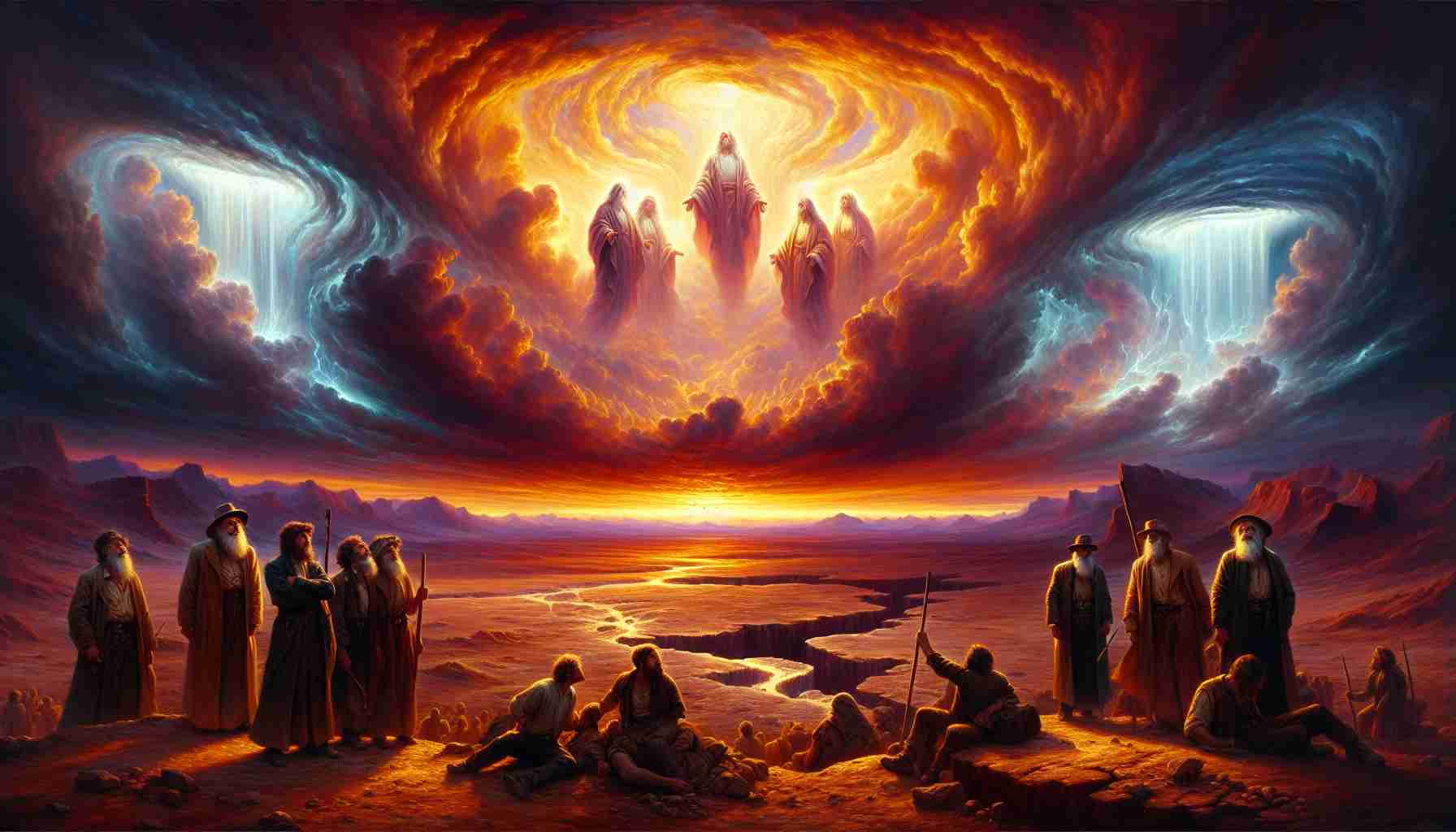

“I still don’t understand why Papa refused to join Korach,” I grumbled, poking at the ground with a stick.
I was thirteen, old enough to carry water to the tents during meetings. That day, Korach — a cousin of Moshe and Aharon — had stood tall and proud in front of our tribe, his voice booming. “Why should Moshe lead us? Aren’t we all holy?” People nodded. He made them feel important, like they all deserved power.
But Papa had frowned. “This is not about fairness,” he had whispered to me. “It’s about pride. Korach chooses division, not unity.”
Still, I didn’t get it. Korach wasn't lying — didn’t Hashem, the name we use for God, say we were a chosen people? Didn’t we all walk through the sea together?
So when Papa told me not to follow the crowd, I rolled my eyes. I wanted to see what would happen.
That night, I crept behind the tent of one of Korach’s followers. It was still and quiet, but I could feel something — a heaviness in the air, like the ground was holding its breath.
Then I heard shouting.
Moshe had returned. His voice shook with sorrow. “If these men die a natural death, Hashem did not send me. But if the earth opens her mouth…”
He didn’t finish.
Because before he could, the ground beneath Korach and his followers split wide open with a roar I felt in my ribs. Tents, pots, goats, people—all swallowed whole into the mouth of the earth. And then silence.
Later, I couldn’t stop crying. Not because I missed Korach. I didn’t even like him. But because I’d stood so close to danger, and because in that moment, I saw what pride can do.
Papa was quiet as I told him everything. Then he said, “Leadership isn’t something we grab. It’s something Hashem gives. Moshe didn’t beg for power. In fact, he begged Hashem to choose someone else.”
“But why didn’t Korach see that?”
Papa sighed. “Sometimes, when people feel overlooked, they try to prove they matter. But instead of lifting others up, they push others down.”
I thought of Moshe’s face when Korach yelled at him—how hurt he looked, not angry. “So... showing kindness even when someone turns against you—”
“Is true strength,” Papa said. “And sometimes it saves more than you know.”
After that, I listened more closely to how people spoke—who built peace and who stirred anger. And whenever I felt like shouting, “That’s not fair!” I tried to ask: “Is this about justice… or about my pride?”
Because I still remember the way the ground looked after it closed again—flat and still, as if Korach had never been there.
But I was there. I saw it. And I will never forget what pride cost him… or what loyalty taught me.
“I still don’t understand why Papa refused to join Korach,” I grumbled, poking at the ground with a stick.
I was thirteen, old enough to carry water to the tents during meetings. That day, Korach — a cousin of Moshe and Aharon — had stood tall and proud in front of our tribe, his voice booming. “Why should Moshe lead us? Aren’t we all holy?” People nodded. He made them feel important, like they all deserved power.
But Papa had frowned. “This is not about fairness,” he had whispered to me. “It’s about pride. Korach chooses division, not unity.”
Still, I didn’t get it. Korach wasn't lying — didn’t Hashem, the name we use for God, say we were a chosen people? Didn’t we all walk through the sea together?
So when Papa told me not to follow the crowd, I rolled my eyes. I wanted to see what would happen.
That night, I crept behind the tent of one of Korach’s followers. It was still and quiet, but I could feel something — a heaviness in the air, like the ground was holding its breath.
Then I heard shouting.
Moshe had returned. His voice shook with sorrow. “If these men die a natural death, Hashem did not send me. But if the earth opens her mouth…”
He didn’t finish.
Because before he could, the ground beneath Korach and his followers split wide open with a roar I felt in my ribs. Tents, pots, goats, people—all swallowed whole into the mouth of the earth. And then silence.
Later, I couldn’t stop crying. Not because I missed Korach. I didn’t even like him. But because I’d stood so close to danger, and because in that moment, I saw what pride can do.
Papa was quiet as I told him everything. Then he said, “Leadership isn’t something we grab. It’s something Hashem gives. Moshe didn’t beg for power. In fact, he begged Hashem to choose someone else.”
“But why didn’t Korach see that?”
Papa sighed. “Sometimes, when people feel overlooked, they try to prove they matter. But instead of lifting others up, they push others down.”
I thought of Moshe’s face when Korach yelled at him—how hurt he looked, not angry. “So... showing kindness even when someone turns against you—”
“Is true strength,” Papa said. “And sometimes it saves more than you know.”
After that, I listened more closely to how people spoke—who built peace and who stirred anger. And whenever I felt like shouting, “That’s not fair!” I tried to ask: “Is this about justice… or about my pride?”
Because I still remember the way the ground looked after it closed again—flat and still, as if Korach had never been there.
But I was there. I saw it. And I will never forget what pride cost him… or what loyalty taught me.